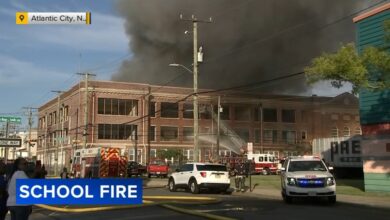Understanding “Trump Martial Law”: Legal Realities, Historical Roots, and Contemporary Implications

What Does “Trump Martial Law” Mean — And Does It Even Exist?
When people say “Trump martial law”, it often refers to a revival of public fears that the president could deploy military powers inside the United States in ways that bypass civilian authority. It’s a term teeming with constitutional drama. But to call recent actions “martial law” is misleading in strict legal terms, even if dramatic.
Historically, martial Trump martial law refers to the substitution of military authority for civilian control—often accompanied by suspension of civil liberties and courts. While the Constitution doesn’t clearly define it, martial law has been declared in emergency contexts such as the Battle of New Orleans, major disasters like the 1906 San Francisco earthquake, riots, including the Lexington riots of 1920, and during World War II in Hawaii.
However, what President Trump and his administration have done—like deploying National Guard troops or asserting control over Washington, D.C.’s police—is not strictly Trump’s Martial Law in the traditional sense. Instead, it’s an expansion of emergency and military authority within murky legal boundaries.
Legal Frameworks: What Laws Enable or Limit Martial-Law-Like Powers?
The Posse Comitatus Act
This 1878 law bars the use of the military for domestic law enforcement unless Congress explicitly permits it. Over time, it’s been expanded to cover the Air Force, Navy, Marines, and Space Force.
The Insurrection Act and 10 U.S.C. § 12406
The Insurrection Act (various sections of the US Code) allows the president to deploy troops domestically during uprisings, usually when states request aid. In contrast, 10 U.S.C. § 12406 lets the president federalize the National Guard in rebellion situations—or if he claims the regular forces are inadequate. Legal scholars warn that Trump’s administration attempted to rely on § 12406 alone—or with broad, inherent constitutional claims—rather than the Insurrection Act proper, a highly debatable and rarely tested approach.
Home Rule Act & DC Police Authority
In August 2025, Trump Martial Law invoked Section 740 of the District of Columbia Home Rule Act to claim temporary authority over the Metropolitan Police. Though he authorized federal control and deployed DC National Guard troops, legal pushback forced a compromise that kept the local police chief in place.
Federalism and Supreme Court Precedents
State-level resistance and lawsuits—like California challenging troop deployment—draw upon constitutional doctrines like anti-commandeering (which prevents the federal government from forcing state agencies to act federally) and the Tenth Amendment. Courts are actively grappling with whether Trump’s invocation of these powers was lawful.
Recent Cases: LA Troop Deployment and DC Martial-Law-Like Actions
Los Angeles, June 2025
In response to anti-ICE protests, Trump deployed roughly 4,000 National Guard soldiers and 700 Marines to LA—without state consent. These forces performed perimeter control and detained civilians—raising alarms about violations of the Insurrection Act, § 12406, and Posse Comitatus. Experts labeled these legal justifications as thin or contrived. Gaia’s legal challenges are underway.
Washington, D.C., August 2025
Trump declared martial law a “crime emergency” to justify federal control over DC police and mobilize the DC National Guard. Critics pointed out that violent crime was actually at a historic low, citing data to challenge the stated crisis-level. Courts intervened, keeping the DC police chief in command and limiting federal overreach.
In both instances, legal experts and commentators expressed alarm at the precedent: even if today’s actions don’t amount to “martial law,” they risk dangerously expanding executive emergency power.
Expert-Tone Insights — Without the Jargon
When you break it down, “Trump martial law” is less a formal declaration and more an unsettling trend: a push to extend emergency powers in loosely defined ways. Think: federalizing the Guard without state approval, unfurling a “crime emergency,” or overriding local governance—all legally shaky, but rhetorically powerful.
A sharp legal op-ed captures it well:
Trump’s martial law pattern of asserting powers in unstructured, opportunistic ways—labeled as ad hoc authoritarianism—is harmful not because it’s efficient, but because of the dangerous precedents it sets.
As a scholar from the Brennan Center aptly notes, invoking § 12406 absent the Insurrection Act “could end up looking quite similar in practice” and raise “dangerous, legally doubtful” questions.
What Does This Mean for the Future?
- Judicial Oversight Will Matter More Than Ever: Courts are examining whether these supposed emergencies satisfy constitutional standards and statutory triggers.
- Congress Has a Role to Play—or Fall Short: Lasting control over emergency powers falls partly to legislation reform—especially of laws like the Insurrection Act.
- Public Awareness Matters: Labeling actions “martial law” may be an oversimplification, but the underlying risk remains: executive overreach camouflaged behind crisis language.
FAQs on “Trump Martial Law”
Q1: Did Trump impose martial law?
No, by traditional definitions. Recent actions like deploying troops to LA or controlling DC police fall under contested emergency powers—not a formal Trump martial law declaration.
Q2: Can the president declare martial law unilaterally?
Neither the Constitution nor the Supreme Court grants unilateral authority. Most believe congressional authorization or state cooperation is necessary—except in extreme emergency.
Q3: What legal tools did Trump use instead?
He relied on § 12406 (for Guard federalization), claimed inherent constitutional powers, and invoked DC’s Home Rule Act (Section 740). These are legally murky and heavily disputed.
Q4: Are these actions legal?
They’re subject to intense debate and court challenge. Lawsuits in California and DC question both constitutionality and statutory violations (e.g., Posse Comitatus, anti-commandeering principles).
Q5: Why is this important if nothing was formally declared?
Because executive power often expands via precedent, not law. Even short-term crises can erode boundaries—and once normalized, these powers are hard to rein in.




